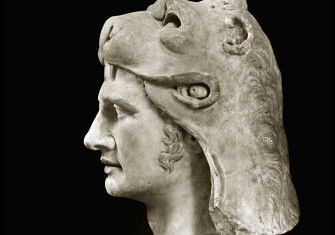The Battle of Cannae
An unprecedented force of 86,000 men fought against Hannibal’s Carthaginian army on 2 August 216 BC.

By 216 BC, Hannibal’s Carthaginian army had already won victories against the Romans in the Second Punic War at Ticinus, Trebia and Lake Trasimene. But then came Cannae.
According to Polybius, the Senate, terrified by Hannibal’s successes, sent eight legions against him. It was an unprecedented force of some 86,000 men. The army’s sheer size, rapidly expanded with raw, inexperienced soldiers, contributed to its defeat.
That defeat, when it came, was epic. Hannibal’s was a much smaller, polyglot army of Carthaginians, Celts, Iberians, Libyans, Numidians and others, with a much higher proportion of cavalry. The forces met at Cannae – a few miles inland of the Apulian coast north-west of Bari – where Hannibal trapped his enemy in a pincer movement. Polybius says that 70,000 Roman soldiers were slaughtered in the dust; Livy puts the number at 43,000.
If Rome was terrified before, what was it now? But Hannibal did not march against it and no one knows why. Livy has a cavalryman tell him: ‘You know how to conquer, Hannibal; but you do not know how to make use of your victory.’
Another Roman writer, Cassius Dio, has Hannibal look back later, crying ‘Oh Cannae, Cannae!’, as if to lament what might have been.






